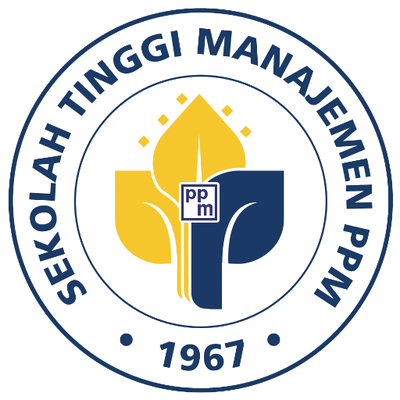PENGARUH ANTESEDEN PERILAKU BERBAGI PENGETAHUAN TERHADAP KEUNGGULAN KOMPETITIF ORGANISASI
Abstract
Keywords
Full Text:
PDF (Bahasa Indonesia)References
Abdul-Jalal, H., Toulson, P., & Tweed, D. (2013). Knowledge Sharing Success for Sustaining Organizational Competitive Advantage. Procedia Economics and Finance, 7, 150-157.
Abdullah, H. S., Hassim, A. A., & Chik, R. (2009). Knowledge sharing in a knowledge intensive organisation: identifying the enablers. International Journal of Business and Management, 4(4), p115.
Aditya, R. (2015). GAYA KEPEMIMPINAN DAN BERBAGI PENGETAHUAN. Retrieved August 11th, 2015, from http://rizkyadityaaa.blogspot.com/2015/04/ jurnal-manajemen.html
Ajzen, I. (1985). From intentions to actions: A theory of planned behavior. . In J. Khul & J. Beckmann
(Eds.), Action control from cognition to behavior (pp. 10-39). Berlin: Verlag.
Ajzen, I. (1991). The theory of planned behavior. Organizational Behavior and Human Decision Processes, 50(2), 179-211.
Ajzen, I. (2005). Attitudes, personality and behaviour. Berkshire, England, UK.: Open University Press, McGraw-Hill International.
Ajzen, I. (2011). Theory of planned behavior. In P. A. M. V. Lange, A. W. Kruglanski & E. T. Higgins (Eds.), Handbook of Theories of Social Psychology (Vol. 1, pp. 438): SAGE.
Alavi, M., & Leidner, D. E. (2001). Review: Knowledge management and knowledge management systems:Conceptual foundations and research issues. MIS Quarterly, 107-136.
Aldi, B. E. (2005). Menjadikan Manajemen Pengetahuan Sebagai Keunggulan Kompetitif Perusahaan Melalui Strategi Berbasis Pengetahuan. Jurnal Studi Manajemen dan Organisasi (JSMO), 2(Nomor 1), 58-68.
Arif, S. (2000). Relevansi Teori Perilaku Terencana Dalam Penelitian Niat Perilaku Konsumen Pengguna Kereta Api Argo Muria. PROGRAM PASCASARJANA UNIVERSITAS DIPONEGORO.
Barney, J. (1991). Firm resources and sustained competitive advantage. Journal of Management, 17(1), 99-120.
Basu, B., & Sengupta, K. (2007). Assessing success factors of knowledge management initiatives of academic institutions–a case of an Indian business school. The Electronic Journal of Knowledge Management, 5(3), 273-282.
Dharmmesta, B. S. (1998). Theory of Planned Behaviour dalam penelitian sikap, niat dan perilaku konsumen. Kelola Gadjah Mada University Business Review, 7 (18)(1998), 85 - 108.
Grant, R. M. (1996). Toward a knowledge-based theory of the firm. Strategic Management Journal, 17(S2), 109-122.
Haryono, S. (2013). Teori Budaya Organisasi & Kepemimpinan. Bekasi: PT. Intermedia Personalia Utama. Jambak, M. I. (2015). The Context Of Knowledge In Organizations From Resource Based Theory To
Knowledge Based Theory: A Conceptual Review. Jurnal Sistem Informasi, 7(1).
Kearns, G. S., & Lederer, A. L. (2003). A resource-based view of strategic IT alignment: How knowledge sharing creates competitive advantage. Decision Sciences, 34(1), 1-29.
Keramati, A., & Azadeh, M. (2007). Exploring the effects of top management's commitment on knowledge management success in academia: A case study. Paper presented at the Proceedings of World Academy of Science, Engineering and Technology.
Khosravi, A. (2013). Antecedent factors of knowledge sharing in research. Universiti Teknologi Malaysia, Faculty of Computing.
Kristiawan, R. (2010). Pentingnya Peran Budaya Organisasi Dalam Menumbuhkan Pengetahuan Menjadi
Nilai Tambah Bagi Organisasi. Retrieved August 11th, 2015, from http://www.dunamis.co.id/knowledge/details/articles/106
Omar Sharifuddin Syed-Ikhsan, S., & Rowland, F. (2004). Knowledge management in a public organization: a study on the relationship between organizational elements and the performance of knowledge transfer. Journal of Knowledge Management, 8(2), 95-111.
Romhardt, G. P. (2003). Managing Knowledge: Building Blocks for Success. New York: John Wiley & Sons Ltd.
Tan, C. N.-L. (2015). Enhancing knowledge sharing and research collaboration among academics: the role of knowledge management. Journal of Higher Education, 1-32.
Van den Hooff, B., & de Leeuw van Weenen, F. (2004). Committed to share: commitment and CMC use as antecedents of knowledge sharing. Knowledge and Process Management, 11(1), 13-24.
Wah, C. Y., Menkhoff, T., Loh, B., & Evers, H.-D. (2008). Social capital and knowledge sharing in knowledge-based organizations: An empirical study. Knowledge Management, Organizational Memory and Transfer Behavior: Global Approaches and Advancements: Global Approaches and Advancements, 119.
DOI: https://doi.org/10.34149/jmbr.v14i2.106
Indexing
JMBR Editorial Office: PPM School of Management, Jl. Menteng Raya 9-19 Jakarta 10340 Phone: 021-2300313 ext 2354

License
JMBR is using CC BY License
This work is licensed under a Creative Commons Attribution 4.0 International License.


















